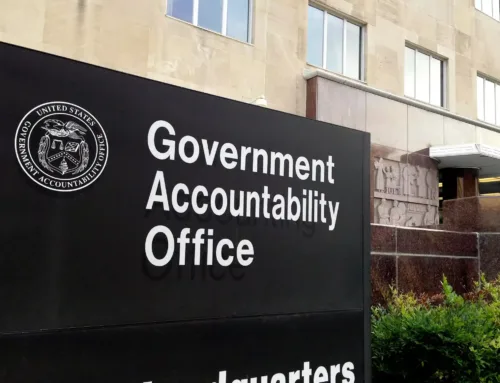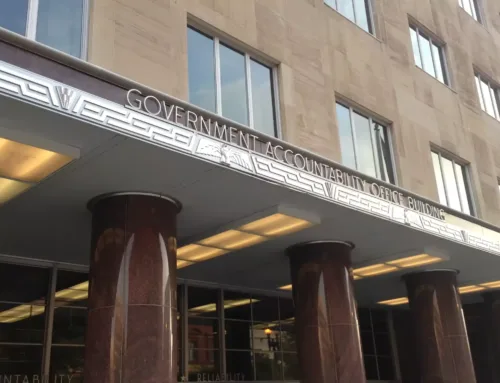Oral Statement of Steve Ellis, Vice President of Programs, Taxpayers
for Common Sense
before
Senate Democratic Policy Committee Oversight Hearing on Waste,
Fraud, and Abuse in U.S. Government Contracting in Iraq
February 14, 2005
Good Morning. Chairman Dorgan, I want to thank you for inviting me to testify. I am Steve Ellis, Vice President of Programs at Taxpayers for Common Sense, a national non-partisan budget watchdog.
We have heard much today about fiscal oversight shortcomings at the Coalition Provisional Authority (CPA). Despite the difficult task at hand, the CPA had an obligation to develop adequate safeguards and record-keeping procedures that would ensure good stewardship of taxpayer dollars. Failure to enact strong fiscal controls over reconstruction funding not only guarantees waste, fraud and abuse but also undercuts our efforts to win the hearts and minds of the Iraqi people.
The rhetorical argument that the CPA is not a U.S. federal agency exists solely to avoid further accountability and oversight. The President settled any debate on November 6, 2003 when he signed legislation providing funding for the CPA “in its capacity as an entity of the United States government.”1 American taxpayers’ money, managed by American contracting officers, is paying American contractors to rebuild the country of Iraq. As the keepers of the federal pocketbook, Congress has an obligation to conduct oversight of how this money is spent.
Furthermore, when our nation’s sons and daughters are in harm’s way is precisely when we need to be most concerned with efficiency and accountability. A quick, efficient, and effective reconstruction process is an important part of protecting our troops and advancing our war effort.
Despite the administration’s disappointing lack of interest in oversight, the Congressionally mandated Inspector General (IG) position has borne significant dividends.
The latest IG report is far from our first indication that all was not right with Iraq contracting. A steady stream of audits and investigations of the CPA and successor operations over the past year have found that poor oversight and a lack of accountability plague everyday operations. Failures cited by the IG included “inadequate financial controls” at CPA2, which created an environment where waste, fraud and abuse were bound to occur.
Additionally, the IG found that that the Development Fund for Iraq (DFI) suffered from “severe inefficiencies and poor management,” and that it was “susceptible to waste, fraud and abuse.”3 The CPA “provided less than adequate controls” to ensure that the $8.8 billion in DFI funds paid to Iraqi government ministries were spent to achieve our overall policy goals.4 Separately, a United Nations sanctioned audit from last year concluded that about half of the $5 billion in Iraq reconstruction funds could not be accounted for because of poor financial controls.5 No one really knows what we got for billions of dollars in Iraqi reconstruction funds. The DFI is supposed to be directed toward humanitarian needs in Iraq and toward infrastructure development not lining people’s pockets.
In a late July audit, the IG noted poor accounting of $600 million in DFI funds that were available for disbursement as cash.6 The IG recommended that the Comptroller be required to implement “a single set of existing accounting standards, standardize fund clearing requirements, develop adequate internal controls and oversight, and implement consistency between guidance and agent appointment letters.”7 Unfortunately, the January 2005 report found many of the same problems cited in July.
This deplorable system created an opportunity for unscrupulous officials and contractors. In October, the IG reported that one Iraqi official had embezzled $500,000 from the DFI.8 Luckily, the money was reclaimed, but poor record keeping may well have kept similar incidents from coming to light.
As of January 11th of this year, the IG was investigating 11 cases of theft, 7 cases of bribery, kickbacks or gratuities, 6 cases of cost mischarging or product substitution, 6 cases of procurement fraud, 4 cases of public corruption, and a dozen other assorted allegations.9
Poor management of the reconstruction process threatens to undermine both the trust of the American taxpayers and security of the Iraqi people. In one case, 8,206 guards were listed on a payroll but only 602 individuals could be verified. At another ministry, payrolls listed 1,471 security guards when only 642 were actually working.10
Iraqi citizens in particular are all too familiar with kleptocracy and misuse of government funds. They witnessed this first hand under Saddam Hussein.
The General Accounting Office pointed out, “Building internal control and accountability measures into the operations of the Iraqi ministries will be critical to safeguarding the billions of dollars in U.S. and international funds that will be provided for reconstruction.”11 But, the only example we have set for the new government agencies is one of a lack of fiscal accountability.
If there is any good news, it is that there is still time and opportunity to get our financial control house in order. As of January 30, 2005, less than 15% of the Iraqi Relief and Reconstruction Funds has been expended.12 We can and we must establish clear financial controls over existing and new contracts, if we are going to reassure the American and Iraqi people that we are wisely and responsibly spending their precious resources rebuilding Iraq.
——————————————————————————–
1 House Report 108-337 (Conference Report), P.L. 108-106, “The Emergency Supplemental
Appropriations Act for the Reconstruction of Iraq and Afghanistan, 2004.” Page 17.
2 Coalition Provisional Authority Inspector General, “Quarterly and Semmiannual Report of the Office of
the Inspector General, Coalition Provisional Authority.” July 30, 2004. Page 2.
3 Coalition Provisional Authority Inspector General, “Coalition Provisional Authority Comptroller Cash
management Controls over the Development Fund for Iraq.” July 28, 2004. Pages i-ii.
4 Special Inspector General for Iraq Reconstruction, “Oversight of Funds to Iraq Ministries through the
National Budget Process,” January 30, 2005. Page i. See also, Coalition Provisional Authority Inspector
General, “Coalition Provisional Authority Comptroller Cash management Controls over the Development
Fund for Iraq.” July 28, 2004. Pages 4.
5 KPMG Bahrain, “Development Fund of Iraq-Report of Factual Findings in connection with
Disbursements for the period from January 1, 2004 to 28 June 2004.” International Advisory and
Monitoring Board for Iraq. September 2004.
6 Coalition Provisional Authority Inspector General, “Coalition Provisional Authority Comptroller Cash
management Controls Over the Development Fund for Iraq.” July 28, 2004. Pages 4-8.
7 Coalition Provisional Authority Inspector General, “Coalition Provisional Authority Comptroller Cash
management Controls Over the Development Fund for Iraq.” July 28, 2004. Page ii.
8 Special Inspector General for Iraq Reconstruction, “Quarterly and Semmiannual Report of the Office of
the Special Inspector General for Iraq Reconstruction.” October 30, 2004. Page 32.
9 Special Inspector General for Iraq Reconstruction, “Quarterly and Semmiannual Report of the Office of
the Special Inspector General for Iraq Reconstruction.” January 30, 2005. Page 34.
10 Special Inspector General for Iraq Reconstruction, “Oversight of Funds to Iraq Ministries through the
National Budget Process,” January 30, 2005. Page 7.
11 General Accounting Office. “Rebuilding Iraq: Resource, Security, Governance, Essential Services, and
Oversight Issues GAO-04-902R”. June 2004. Page 25.
12 Special Inspector General for Iraq Reconstruction, “Quarterly and Semmiannual Report of the Office of the Special Inspector General for Iraq Reconstruction.” January 30, 2005. Page 1.










